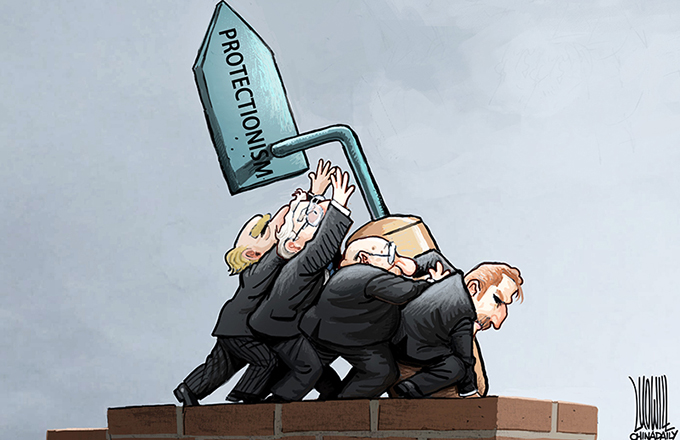US Commerce Department's move goes against fair trade
 |
The move, which for the first time since 1991 was instigated on the Commerce Department's own initiative rather than in response to a request by a US company, is unwarranted and counterproductive.
It erects barriers to normal bilateral trade and does a disservice to the two sides' ongoing efforts to reduce their trade imbalance. It also comes less than a month after US President Donald Trump wound up his maiden trip to Beijing with the signing of business deals worth $250 billion.
It is normal for the world's two largest economies to have trade frictions from time to time, and Beijing is doing its best to ease them. The 100-day action plan it proposed under the framework of the Sino-US Comprehensive Economic Dialogue in Washington underscores its earnestness in trying to accommodate the US' concerns.
However, although the US agreed to the action plan, it seems Washington wants Beijing to make all the concessions, and it is unwilling to try and meet it halfway.
Instead, the US has gone in the opposite direction. Rather than opting for consultations or the dispute-resolution mechanisms of the World Trade Organization for what it claims are unfair practices regarding imports of alloy aluminum sheet from China, it has opted for unilateral action. This only hurts mutual trust and efforts to strengthen cooperation, and may trigger retaliation — a statement from the Ministry of Commerce said China was highly dissatisfied with the US move.
In the context of the big picture of Sino-US trade, the imports of Chinese aluminum sheets, the targeted products, are of little significance — imports of the Chinese products were valued at about $600 million last year. Yet the signal sent by Washington on the issue is more worrying, since it appears to be again leaning toward protectionism.
By launching probes into the Chinese imports without any requests from US companies and industries, Washington is going against the free, fair and reciprocal trade that it has so often proclaimed it wants to safeguard.
The interwoven economic interests of the US and China have been a firm foundation for what the US State Department described on Wednesday as a strong and constructive results-oriented relationship. Rather than making moves that threaten to derail it, the US should strive to keep relations on track and moving forward. Maintaining stable and healthy trade ties would enable the two sides to tap the huge potential of trade cooperation.













